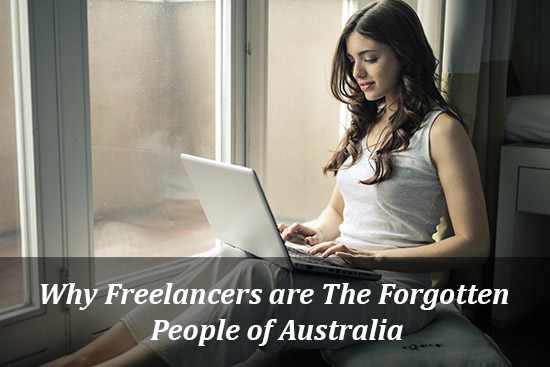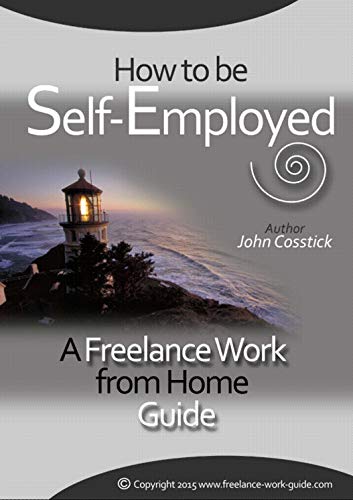With the Australian federal election just around the corner, politicians are now preparing for electioneering, and this is obvious through campaign buses with conspicuous party slogans and massive candidate portraits.
Along with this, politicians are now ramping up their election game by marketing themselves through their future advocacies, like for instance, energy and ones that would benefit the lower and middle income population.
Politicians always appeal to the lower and middle income voters because they make up most of the voting demographic.
However, it is curious that the spotlight is often on the traditional working class—there is little to no credit to individuals belonging to the freelancing community.

Despite the fact that more and more individuals are shifting to the freelance economy from traditional employment.
In fact, according to one of the world’s leading online talent marketplaces (Upwork), in 2015, one-third of the working population—more than 4 million Australians—are freelancers or have done freelance work.
One-third of the working population is a significant number and that’s not something politicians or the government should ignore.
Thirty-two per cent of the Australian workforce are freelancers and given freelancing’s liberating work culture, we’re expecting to see a growth spurt further down the road—so why is there very little attention to freelance workers?
There may be several reasons why freelancers may be the forgotten people of Australia:
1. The Freelancing Body Is Still Unrecognized.
The existence of freelancers in Australia is only somewhat understood and the government has yet to recognize freelancers as a formal working body.
Freelancers are part of the workforce but when politicians speak of “workforce”, they’re still referring to individuals working under traditional employment. Freelancers are still considered independent of the traditional working class, which should not be the case.
Since freelancers make up one-third of the Australian workforce, they deserve to be formally named part of the workforce, despite the unconventional work arrangements.
2. Freelancers Don’t Have Unions—At Least Not Yet

While nearly all kinds of professionals have their unions to protect their rights and interests, freelancers currently have none in Australia.
Yes, there may be existing online freelancer communities, but there isn’t a tangible group—like the Freelancers Union in the United States—for independent online contractors in the country.
3. The Freelancing Community Is a “Silent” Majority
In an annual report for freelancers in the US, by 2027, America is looking at more than half of its workforce as freelancers—and by freelancers, we mean skilled, white collar professionals who worked freelance by choice.
We’re expecting a similar rise in numbers of gig economy workers here in Australia, but given the lack of attention and formal recognition to freelancers in the country, the freelancing demographic, though massive, is still a silent majority.
Freelancers remain without a voice despite occupying nearly half the current labour force.
4. Freelancing, Though Widespread, Is Still a New Concept.
Most traditional jobs that exist today have already existed for centuries. Online freelance work, on the other hand, is relatively young—online employment has only existed after the advent of internet-based technological innovations.
Governments (not only Australia’s) are still wrapping their heads around the concept of freelance employment and hence are still in the dark when it comes to dealing with freelancers. Since it is new, freelancing is completely unregulated, making freelancers easily dismissible by legislators.
5. Freelancers Still Don’t Qualify For Government Protection.

Sadly, since the freelancers aren’t as recognized by the law as individuals employed traditionally, freelancers still don’t qualify for government protection e.g. Fair Work Commission. This is one of the biggest hurdles in freelancing so far—the lack of available protection either from the government’s or their clients’ end.
6. Premium Costs For Health Care and Saving For Retirement is The Sole Responsibility Of The Individual Freelancer.
While options to self-fund retirement plans and health care packages, without government or employer assistance, are the responsibility of the individual freelancer costs may be exorbitantly priced for regular freelancers to afford.
Freelancers with no “regular” work may find it difficult to have the savings discipline of compulsory superannuation plus they do not have the employer’s contribution to supplement their contribution. This is a policy issue that governments will have to address.
For freelancers, it is important to have flexible health care plans that offer protection for when they are sick and unable to work, because unlike in traditional employment, there are no sick or paid leave entitlements that can help freelancers which they can take advantage of.
In the United States an insurance scheme especially designed for the freelancing community has just been recently launched. You can read about this new service on the United States Freelancers’ Union blog by clicking here.
7. Freelancers Are Prone To Exploitation Due To Lack Of Protection.
Some freelance workers have to endure horrible clients, unrealistic work hours and work expectations, and low pay partly because of the lack of attention from the government. There are no protections in place for the welfare of individuals in the gig economy, which makes them susceptible to exploitation.
Freelancers can’t help but feel ignored since they don’t have the same rights and benefits as workers with traditional desk jobs. Proper recognition of and protection for freelance individuals should be a priority, especially since the freelance economy is expanding swiftly.

Why the government should think twice before ignoring freelancers:
8. They Are The Silent Majority.
In the near future, we can expect more individuals resorting to freelancing because of the increased demand for flexible work arrangements, which means that soon, most of the workforce will be saturated by freelancers.
Freelancers may be silent, but they are a significant section of the labour force—the opinion of millions of freelancers will matter, especially in the forthcoming elections.
9. Freelancing Is Booming and It Helps The Economy.

Since freelancing is international, it opens up numerous opportunities for individuals to work and earn money, which in turn, equates to more income for the government.
According to one report by the Freelancers Union and Upwork, in the United States alone, freelancers are able to contribute $1.4 Trillion annually to the economy, which is a big contribution to the economy.
While studies on the contributions of freelancers in the Australian economy are limited, we can expect that freelancers in the country also have a significant contribution to the Australian economy.
10. The Freelance Workforce Is An Untapped Resource.
Perhaps by now, policymakers are realizing that the freelance economy has so much raw potential, hence the need for more attention.
If the government can find a way to make online working more favorable to freelancers, the government can expect more support from the freelance workforce in the future. The power of innovation and cross border co-operation is constantly growing.
11. They Are In Need Of Protection.
Saying that there are risks in freelancing is an understatement. At some point, freelancers have experienced dealing with unsatisfactory and downright unfair working conditions as a result of zero policies for freelancer protection.
From an individual standpoint, the lack of assistance for health benefits or retirement for freelancers may dampen their income and their ability to financially prepare for the future.
From an economic standpoint, the lack of protection for freelancers may hamper their ability to bring in more income not only for their family, but for the government in goods and services tax for overseas contracts. To date, this has not attracted the attention of the government.
12. More Legislation Favoring Freelancers = More Benefits For The Government
On the flip side, having regulations in place for the protection of individuals in the freelance economy also equates to protecting the government’s interest in the long run.
Legislation that would help freelancers preserve their rights and would help them optimize their ability to earn and save would positively impact the economy.
It makes sense that a workforce able to create more than 50 billion of dollars of economic activity annually for the government is worth protecting.
13. Freelancing Opens Up More Opportunities, Even For Older Workers.

While it is common in traditional employment to encourage older individuals to retire, in the freelance economy, jobs are less age sensitive.
According to statistics, in 2015, the number of working individuals with an age of 55 to 64 has increased to 13% after being stagnant in 10% in the past years.
Through the freelance economy, more work opportunities for older workers, seniors and retirees have opened up, and this is expected to continue further in the next decade.
Traditional employment doesn’t give the same work opportunities for aging workers, and it’s a good thing that freelancing is able to give older workers a chance to put their skills to use and still achieve a good work-life balance because of flexible work arrangements through freelancing.
It also allows older workers to retire part-time more easily. This changes the longevity risk of retirees outliving their retirement savings.
14. Benefits Of The Freelance Workers Extend To Companies.
Besides having a positive economic impact on the government, the freelance workforce is also able to benefit companies able to take advantage of the freelance economy.
Businesses able to digitize and adopt non-traditional work arrangements are able to find workers who can help them maximize profit through decreasing operational costs.
Workers in the gig economy are preferred by companies (both Fortune 500 companies and startups alike) because of the flexibility of hiring and managing freelance talent compared to hiring professionals the traditional way.
15. The Government Needs To Accept That Sooner Or Later, Freelancing Will Become A Normal Way To Work.
We call freelancing a “non-traditional” work arrangement but eventually, as freelancers take over more and more of the workforce, freelancing may become the norm.
With this in mind, the government needs foresight, which means at least recognizing the freelancers on a formal level and developing legislation to educate, develop and protect them as a very important section of the workforce.
While they make up over a third of the country’s workforce, freelancers are still the forgotten people of Australia for various reasons, but primarily because of the lack of recognition and support for the freelancer community.
Compared to traditionally employed individuals, freelancers are at a disadvantage when it comes to government-sanctioned benefits and protection, which makes it daunting for some to develop freelancing careers.
The government should take a closer look at what it can do to formally acknowledge the existence of the freelance workforce.
As freelancers, we’re eager to see what’s in it for us in the future and we’re curious about how policymakers are aware of the need for reform in legislation that favors the freelancing community.
With many households now facing the prospects of negative equity in home ownership this will mean for many the solution to this problem will be lifting their income by freelancing their skills.
This will enable them to reduce their negative equity more quickly. This is another reason that freelancing matters to Australia.
For those readers interested in more reading on the importance of freelancing here are some links:
- Freelancing can help you repay housing negative equity
- Drought-proof your farming business – become a freelancer for a consistent income to help survive tough times
- Millennials freelancing can help themselves save for a home or reduce their existing mortgage
- Students freelancing can help pay for their fees, repay debts and cover living expenses – top 20 ways
- Freelance retirees – 12 tips on how to make your money last longer
- How freelancers can cope with international competition
- Rising employment overshadowed by unprecedented wage stagnation
- The new economy and the future of work














